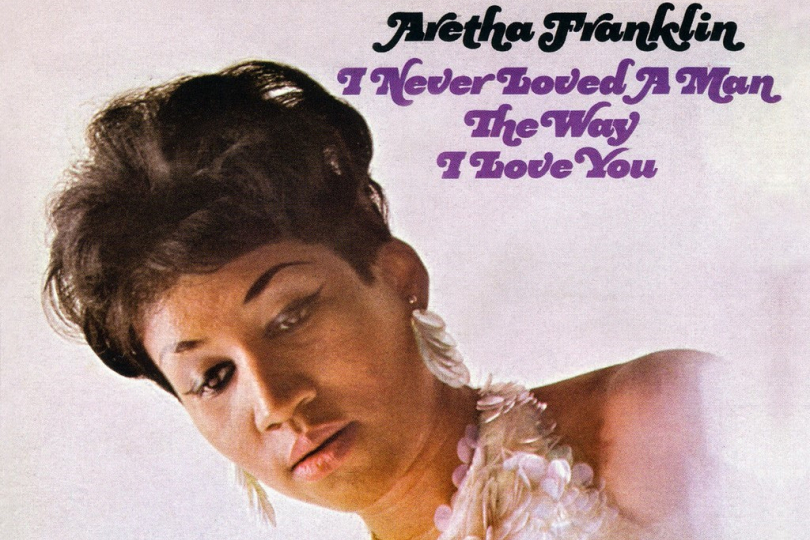
Story of a Hit #7: "Respect"
It's a song that is much larger than its two-and-a-half minutes. Its powerful message has endured the decades and has come to represent social movements like feminism, Black rights and equal representation. Today, we're going to look at one of the most important songs of all time and the story of how it came to be.
In 2021, Rolling Stone magazine ranked Aretha Franklin's "Respect" as the best song of all time. It's a groovy, soulful, R&B classic and its importance as a feminist anthem cannot be understated. Released in 1967, in the wake of the feminist wave of the 60s and 70s, it's hard to imagine our world without it – its influence on gender equality and music itself runs deep into our culture and our psyche.
Franklin had been performing the song live for some time and chose to cover it for her debut record with Atlantic I Never Loved a Man (The Way I Love You). The single "Respect" topped the Billboard Hot 100, and even reached no. 10 in the UK, elevating her to international fame, as well as earning her two Grammys. Today, of course, we know it as Aretha Franklin's signature song and it's a big part of what earned her the title Queen of Soul.
The original version by Otis Redding however, released only two years earlier in 1965, was a different sort of song. Otis Redding was an incredibly important singer in his own right, influencing soul and R&B for generations, despite his tragically short career. His version, unsurprisingly sung from the perspective of a man, was also very successful and became a crossover hit. Listening to it today, it's quite incredible how the reversal of genders and a few differences in the lyrics dramatically change the tone.
Redding's version reinforced the traditional idea of a family, that the working man deserves respect from his women when he comes home with the money. The word "respect" in his version could be read as a sort of "euphemism for sexual reward", according to biographer Jonathan Gould. The song itself is driving and soulful, yes, but at the same time almost comical, and to quote Gould, the "celebratory blaring of the horns ... seem to be heralding a carnal reunion of epic proportions."
At this point, it might be important to note that "Respect" was not a feminist anthem until Franklin's version came out. And when you compare the two versions, recorded within two years of each other, one by the King of Soul and the other by the Queen, there is so much that sets them apart.
When Franklin sang the song, reversing the gender of the protagonist, the song turned into a powerful message. About a woman who does nothing wrong by her man but she demands "respect" – in this case, according to author Matt Dobkin, an appropriate level of physical attention when he comes home. This animated video clip by Brendan Huza won the right to be included as a new 'official' clip in 2014, and by tipping it on it's head I think it really helps you see the universality of the song's message.
The universality of this kind of "respect", I believe, is what made this song the hit seeped into society and spread all around the world. It spoke to the American women in their struggle for equality, to the Black community who were long waiting for justice and to anyone from a minority who felt they weren't getting the respect they deserved. Check out this video of Diana Ross and the Supremes singing a sort of battle of the sexes with The Temptations in 1968.
This version has Diana Ross singing the line "sock it to me when you get home", which was originally added by the Franklin sisters, Erma and Carolyn, who sang backing for Aretha for many years – you hear them rapidly chanting it after the chorus. Curiously, "sock it to me" sounds like it has strong sexual connotations and it's kind of fitting that it features in the song the way it does. Perhaps it was one of the factors that made it big – the song may be asking for an appropriate level of physical attention, but it's certainly not trying to be prudish. Apparently, it became a household expression following Franklin's release, and later, in an interview in 1999 she said that they hadn't meant it sexually at all, it was just a cliche line.
So much of what made "Respect" a hit, came from the Franklin arrangement, according to NPR. Aside from its feminist voice, it also had glorious backup singers, horns and a catchy sax solo, everything adding up to hit material. The most noteworthy change was the famous chant "R-E-S-P-E-C-T, find out what it means to me", which apparently came from Aretha's sister Carolyn. "Take care of TCB" the other iconic lyric stood for "taking care of business", that is, pleasing one's partner.
This iconic chorus wasn't part of Redding's version, which does seem to be lacking it. In fact, Redding was only slightly begrudging of the fame that Aretha Franklin's version attained, even describing it as the song that "a girl took away from me" in one performance. In 1967, the day before the tragic plane crash that killed Otis Redding and four of his band members, he sang it and included the iconic chorus. As he shouts the letters "R-E-S-P-E-C-T", it almost sounds like he's singing somebody else's song.
As an 80s kid, I was introduced to Blues and R&B by the cult 1980 film The Blues Brothers. And so for years, I associated Aretha Franklin and her incredible voice with the song "Think", which features in one of the most memorable scenes in the film. Years later I found out that it wasn't THAT feminist song by Aretha Franklin that had made her famous.
According to John Landis, the director of both Blues Brothers films, Aretha was surprised by the choice of song in the first film: "Really? Don’t you want me to sing 'Respect'?" But in the film's 2000 sequel, she finally got to sing her signature song, in what is a fabulous rendition.
But of course, Aretha Franklin recorded dozens of great hits, like "I Say a Little Prayer", "(You Make Me Feel like) A Natural Women", "Chain of Fools" and many others. Her career spanned over 60 years, she sang her whole life, with her final public performance at the age of 75. She influenced music in so many ways, as well as supporting the social rights of Black people and Native Americans. She was the Queen of Soul in more ways than one.
What do you think? Is "Respect" the biggest feminist song of all time? The song with the most important social message?
Leave us your opinion below in the comments!
If you have found an error or typo in the article, please let us know by e-mail info@insounder.org.





